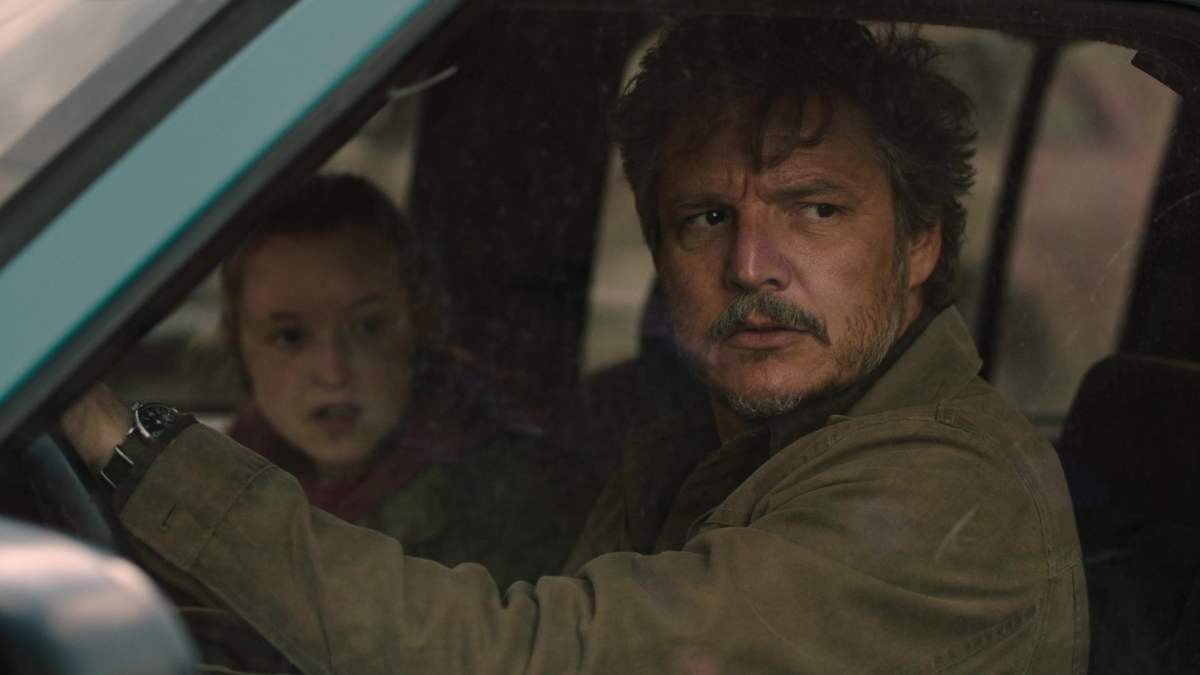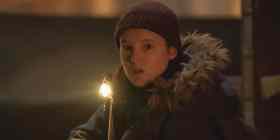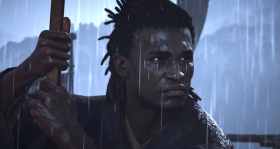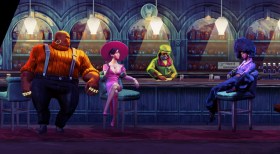Episode 4 of The Last of Us HBO primarily focuses on the growing relationship dynamics between the series’ two main protagonists Joel and Ellie, presenting lighthearted moments of connection, as well as a few more heavy-handed scenes which test the two emotionally.
This episode also dramatically sets up the story of two of the first games’ characters Henry and Sam in cliffhanger like fashion, and also introduces a brand new faction, which sees Jeffrey Pierce (the original voice and motion capture actor for Tommy in The Last of Us Part I & II) return in a brand new role as Perry.
In this recap of HBO’s The Last of Us Podcast Episode 4, we’ll break down some of the main themes, behind-the-scenes tidbits, and symbolic moments highlighted in Episode 4 as discussed by Showrunners Craig Mazin (Chernobyl), Neil Druckmann (Creative Director on The Last of Us Part I & II), and host of the podcast Troy Baker (Joel’s original voice and motion capture actor on The Last of Us Part I & II), as well as compare and contrast the HBO adaptation to the base games.
HBO’s The Last of Us Podcast – Episode 4 Recap – ‘Please Hold to My Hand’
- Ellie’s fascination with owning a gun
- The meaning of the pun book – ‘No Pun Intended: Volume Too’
- The moment Ellie shoots Brian
- Introduction of the new faction & casting of Melanie Lynskey
- Jeffrey Pierce’s first appearance as Perry
- Additional analysis and notable quotes
Ellie’s fascination with owning a gun
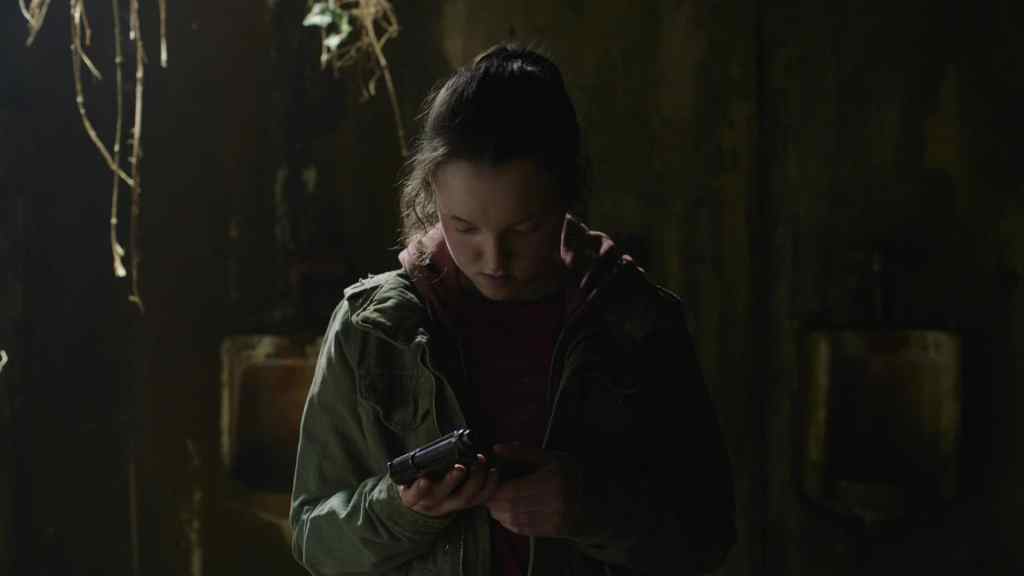
Series Showrunner and Creative Director on The Last of Us Part I & II Neil Druckmann spoke to Ellie’s relationship to the gun she had obtained towards the end of Episode 3, explaining her infatuation with the object helped to paint more of a picture on Ellie’s way of thinking when approaching this world.
Druckmann noted the personal questions Ellie had asked Joel in this episode were centred around navigating violence, such as what it was like to kill, saying that she had a fascination with power and a sense of independence. He added that her taking the gun was like a way of ‘preparing herself’, saying:
‘She doesn’t want to be in a situation where Joel is going to have to save her. She wants to hold her own and she wants to demonstrate that she can hold her own’.
Series Showrunner Craig Mazin also noted her obsession with the gun did not stem from a fear of losing her life, and instead pointed to a sense of ‘aspiration’ she had towards Joel and his ability to commit violent acts – referencing his assault on a FEDRA guard in Episode 2. Mazin also touched on the connections this may of had to the origin of her bite mark, saying:
‘We don’t yet understand how she became infected… but I think it’s probably safe to say that it was violent and perhaps if she had, had a gun, if she had been more prepared or had more of a position of power, she could have prevented it from happening’.
The meaning of the pun book – ‘No Pun Intended: Volume Too’
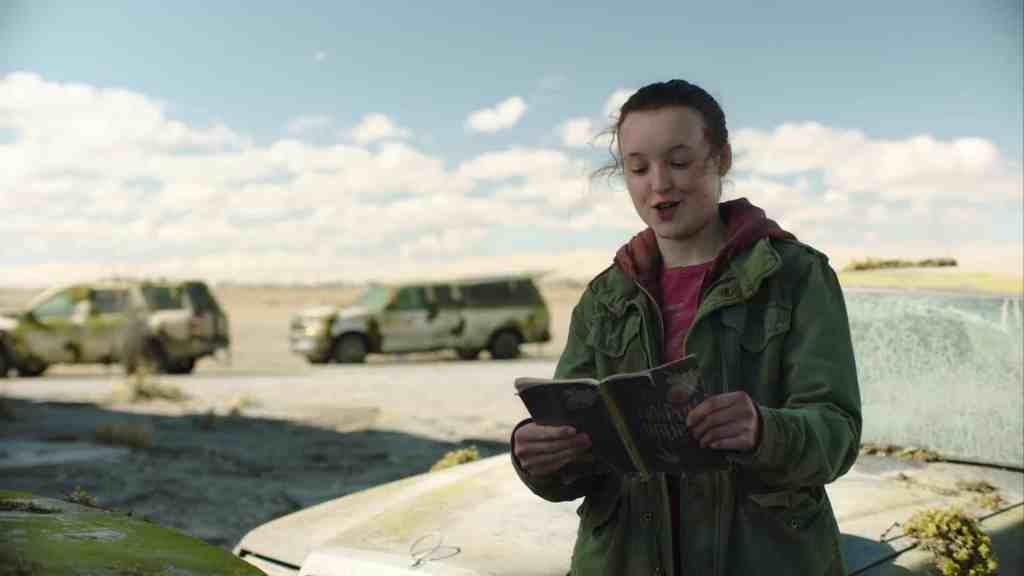
Episode 4 included multiple nods to the first game, including the syphoning of gas, the Hank Williams cassette tape played on Joel and Ellie’s car ride, the adult magazine Ellie peruses in the backseat, as well as lines from everyone’s favourite pun book – ‘No Pun Intended: Volume Too’.
Mazin spoke to the importance of including the pun book in the adaptation, saying that the moments of levity she had when laughing at each joke would undercut the stage of life Ellie was in at that time. Mazin’s friend Scott Frank (Creator and Writer of The Queen’s Gambit) described this time in adolescence – when desperately wanting a sense of independence, while at the same time longing for the protection and safety a parent provides – as, ‘Fuck you, tuck me in’.
Mazin added, ‘I love that Ellie has this joy for something so juvenile and infantile and stupid – and she knows it’s stupid but she loves it. It’s honest joy… I always find myself connecting to characters when they show me what they love.’
Druckmann and Mazin also discussed how the pun book could connect back to the shifts within Joel and Ellie’s relationship. They explained that both the car ride conversations between them, and the final joke Ellie tells Joel at the end of the episode were organic moments of connection between the two that left Joel completely unaware of the changes in emotions he was beginning to feel for Ellie.
Druckmann stated: ‘[Joel and Ellie are] organically connecting with each other, whereas before it’s like they have to be very thoughtful and like, try… and now they don’t have to try anymore… now it’s happening.’
The moment Ellie shoots Brian
Also discussed in this episode of the podcast was Brian – the first man we see Ellie shoot in the attempts to save Joel as he’s being strangled.
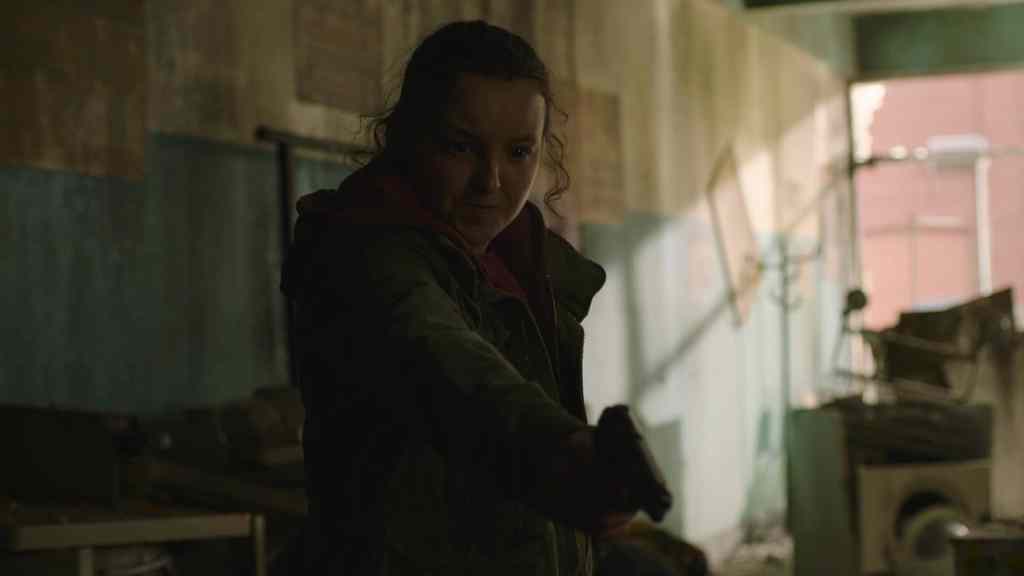
Mazin described this scene as an opportunity to both ‘ground violence’ and humanise the enemy in question, saying:
‘It was important, I think for us tonally, to make it clear that violence isn’t clean and the people that you hurt are as human as you are’.
He also nodded to the nature of violence within video games in comparison to television, explaining that in a game the violence a player experiences is more routine or run-of-the-mill. It’s also important to note that these themes were touched on previously in The Last of Us Part II, as enemy AI would at times plead with the player after receiving an injury, or refer to pets or other members of their group by name, often mourning these characters in real-time.
The team also discussed the emotions between Joel and Ellie after this moment, as this was something Mazin says ‘really struck [Ellie] to her core’ after previously being so elated at the thought of owning a gun.
Druckmann explained it was a moment in which both characters held complex feelings, as it was a time ‘they should be comforting each other,’ but instead Ellie feels shameful over the fact she was about to cry, and Joel is angry because he felt he hadn’t done a good enough job as a protector. Druckmann added:
‘Often in this genre… a character like Ellie would symbolise the innocence that exists in this world, and in this moment when a guy is begging for his own life Ellie would be arguing on that guy’s behalf… and she does none of that… She understands what needs to happen and she walks away and lets it happen… Her thought process is, ‘I feel sad for him, so I must be weak.’
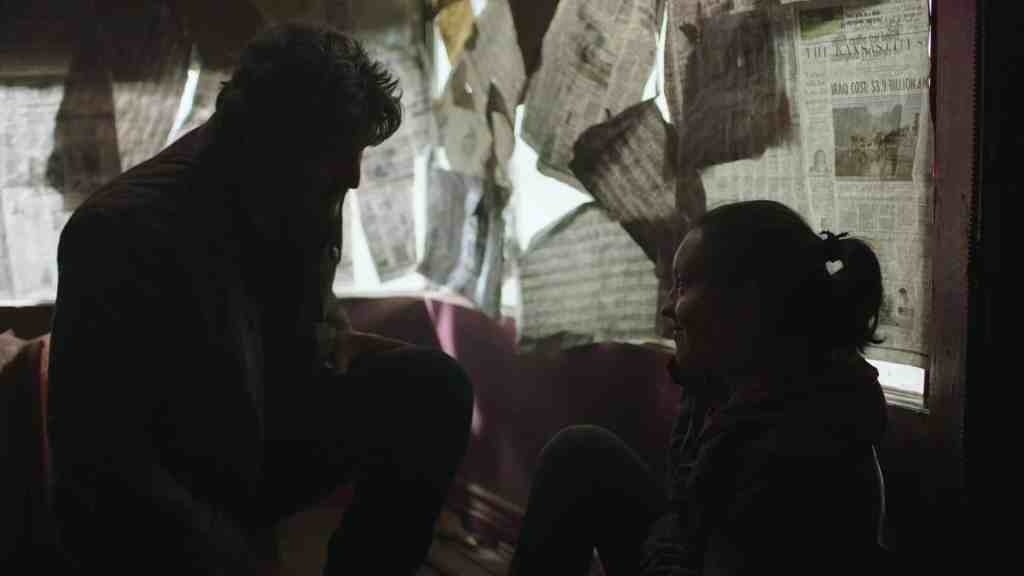
Mazin also pointed to the moments afterwards where Joel is teaching Ellie how to properly use a gun, claiming that so far in the series it was ‘the most father-daughter moment they’ve had.’. The team also spoke to Joel wanting to avoid getting too close to Ellie out of fear he would experience heartbreak all over again, as he did with his daughter Sarah. Druckmann mentions this scene was a moment Joel was ‘giving in’ to the idea of not being alone, with Mazin adding:
‘Even though Joel doesn’t get it, we know there’s no coming back. Once he gives her that gun and he shows her how to use it, he is on a permanent path towards returning to fatherhood’.
Introduction of the new faction & casting of Melanie Lynskey
A new faction was introduced in Episode 4, with the group spearheaded by a new character Kathleen (Melanie Lynskey). Druckmann explained that this new faction was a chance to introduce new character arcs, saying:
‘The show forges the ability to leave Joel and Ellie and flesh out other characters in different ways, and the best thing I think you could do in The Last of Us is flesh out your antagonist. To show that there’s motivation behind what they’re doing, they don’t see themselves as villains or the bad guys, we’re just at odds with each other because our goals somehow overlap what we want, which are different things.’
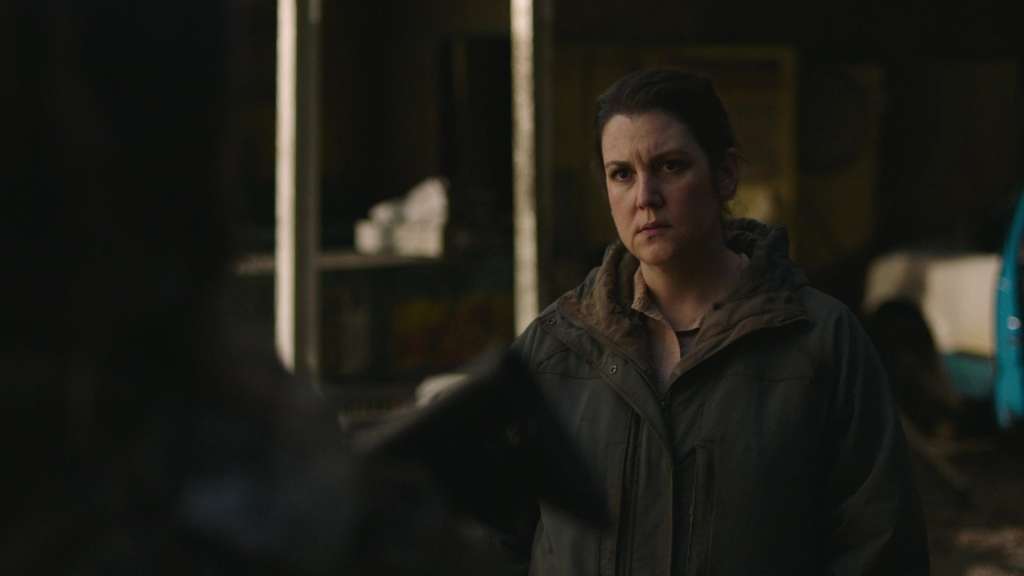
As this new faction are presented as the antagonists, Mazin also spoke to the Max Max nature of some post apocalyptic stories, saying it was unlikely humanity would descend to this point if ever faced with these events. He felt the decisions made by some of these more hardened or violent communities would be driven by the love they had for each other, adding, ‘that love means we must protect ourselves and our stuff and stay alive at any cost.’
Mazin also compared the character of Kathleen to Madame Defarge from A Tale of Two Cities by Charles Dickens, saying Kathleen is, ‘like this revolutionary who quietly becomes a terror and who does horrible things in service of that revolution, but also at the same time is somebody that we can empathise with and feel for because she has suffered.’ They also noted Lynskey had a ‘sweetness’ and a ‘maternal nature’ that made her that much more interesting for the role.
Druckmann and Mazin also spoke on casting Melanie Lynskey for the role, as they had both ‘landed on’ her name very early on. Mazin had been friends with Lynskey for many years, and when approaching her for the role said that if there was even ‘one percent’ of her that didn’t feel connected to the material, he wouldn’t be offended if she declined the part. Luckily, she was receptive and was officially on board The Last of Us HBO.
Jeffrey Pierce’s first appearance as Perry
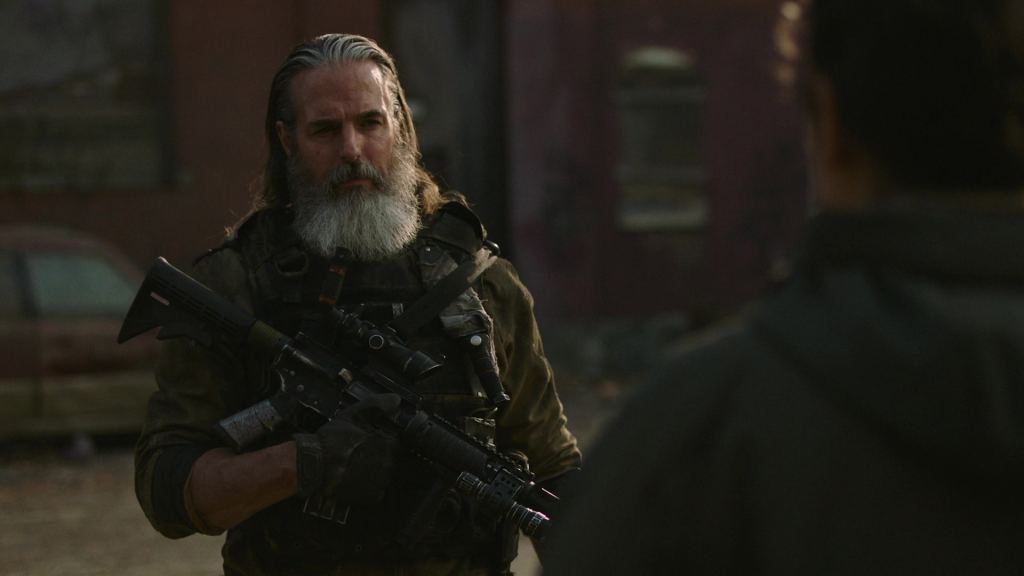
Jeffrey Pierce (the original voice and motion capture actor for Tommy in The Last of Us Part I & II) also made his first appearance in this episode, taking on a new role as Perry in the newly introduced faction.
Perry is referred to as Kathleen’s ‘revolutionary right hand man’, and Troy Baker pointed to some underlying tensions the pair had. He specifically pointed to the discussions they had when hearing something underground, as well as Kathleen’s quest to hunt for Henry and Sam – who the audience has not been introduced to yet. Baker mentioned that the scenes between the pair communicated their differences in leadership styles, as Perry both questions and disagrees with Kathleen, while also accepting his place in the hierarchy. Mazin stated:
‘That’s a tough character to play, and Jeffrey did a brilliant job… he believes in her, he follows her, but he is also far more moral than she is.’
‘Sometimes the person who is leading needs to be the person who has the least reluctance, that’s why they lead you to victory. He’s not as interested in her pursuit of vengeance, which is a function of her love… but he will follow her despite it.’
Mazin also added: ‘It was important for us for the audience to wonder why. Why is he following her? What is so compelling there? All I can tell you is, keep watching the show.’
Additional analysis and notable quotes
- The title of the episode ‘Please Hold to My Hand’ is a lyric from ‘Alone and Forsaken’ by Hank Williams, referencing the cassette tape Ellie plays in the car when travelling with Joel.
- The original location Ellie and Joel were travelling to in the first game was Pittsburgh, whereas in the adaptation this was changed to Kansas City. Druckmann referred to this as a ‘superficial change’ and said it was harder to manufacture Pittsburgh in the areas they were shooting in. He also said the locations Ellie and Joel landed in had to tie in with certain times of year due to where the story was heading, as well as specific story beats which were taking place in other locations.
- Craig Mazin mentioned he took resource management and lack of ammunition into account when deciding Joel would kill Brian with a knife as opposed to a gunshot.
- Craig Mazin – ‘It was important, I think for us tonally, to make it clear that violence isn’t clean and the people that you hurt are as human as you are’.
- Neil Druckmann – ‘The show forges the ability to leave Joel and Ellie and flesh out other characters in different ways, and the best thing I think you could do in The Last of Us is flesh out your antagonist. To show that there’s motivation behind what they’re doing, they don’t see themselves as villains or the bad guys, we’re just at odds with each other’.
- Craig Mazin – ‘Sometimes the person who is leading needs to be the person who has the least reluctance. That’s why they lead you to victory’.
- Neil Druckmann – ‘Like parents that have certain knowledge and decide, when do we withhold information from our kids? And when do we lie to them? And when do we tell them the truth? Which is also a theme that will keep coming up in this show’.
- Craig Mazin – (Referencing the moment Joel is teaching Ellie how to use a gun) – ‘Even though Joel doesn’t get it, we know there’s no coming back. Once he gives her that gun and he shows her how to use it, he is on a permanent path towards returning to fatherhood’.
- Troy Baker – ‘Sometimes the grief and the sadness is all that you have that remains of the person that you are grieving or sad over… When there is an opportunity to love again… an invitation to feel joy, connection, hope, something… there is this fear that you’re swinging from one vine to the next’.
- Craig Mazin – ‘If you’ve played the game a hundred times, I can assure you, you are going to be startled a lot between now and the end of this series’.
For further analysis and reading on the HBO adaptation of The Last of Us, you can check out the following articles:
- A spoiler-free review of the entire first season of The Last of Us HBO TV series
- The Last of Us HBO TV series: Cast and Character Guide
- The Last of Us interview: Henry and Perry actors examine their work
- The Last of Us interview – Storm Reid on portraying Riley
Episode recaps and analysis:
- The Last of Us – Episode 1 Recap – ‘When You’re Lost in the Darkness’
- The Last of Us – Episode 2 Recap – ‘Infected’
- The Last of Us – Episode 3 Recap – ‘Long, Long Time’
- The Last of Us – Episode 4 Recap – ‘Please Hold to My Hand’
- The Last of Us – Episode 5 Recap – ‘Endure and Survive’
- The Last of Us – Episode 6 Recap – ‘Kin’
- The Last of Us – Episode 7 Recap – ‘Left Behind’
- The Last of Us – Episode 8 Recap – ‘When We Are in Need’
- The Last of Us – Episode 9 Finale Recap – ‘Look for the Light’
Behind-the-scenes podcast recaps:
- The Last of Us Podcast – Behind the Scenes of Episode 1 – ‘When You’re Lost in the Darkness’
- The Last of Us Podcast – Behind the Scenes of Episode 2 – ‘Infected’
- The Last of Us Podcast – Behind the Scenes of Episode 3 – ‘Long, Long Time’
- The Last of Us Podcast – Behind the Scenes of Episode 4 – ‘Please Hold to My Hand’
- The Last of Us Podcast – Behind the Scenes of Episode 5 – ‘Endure and Survive’
- The Last of Us Podcast – Behind the Scenes of Episode 6 – ‘Kin’
- The Last of Us Podcast – Behind the Scenes of Episode 7 – ‘Left Behind’
- The Last of Us Podcast – Behind the Scenes of Episode 8 – ‘When We Are In Need’
- The Last of Us Podcast – Behind the Scenes of Episode 9 – ‘Look for the Light’
The Last of Us is now streaming on HBO Max in the US, and Binge in Australia.
